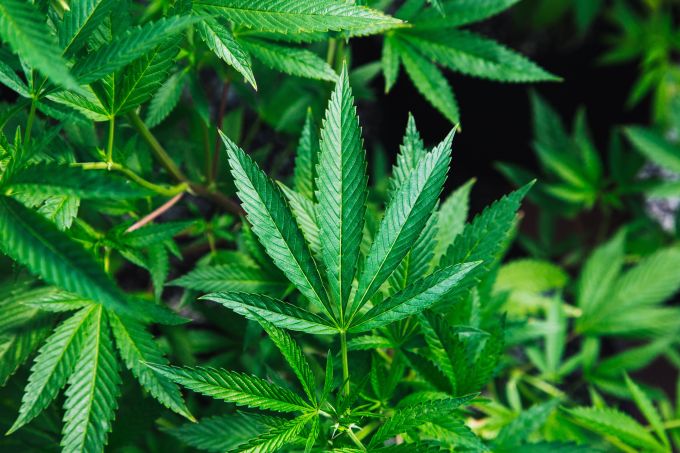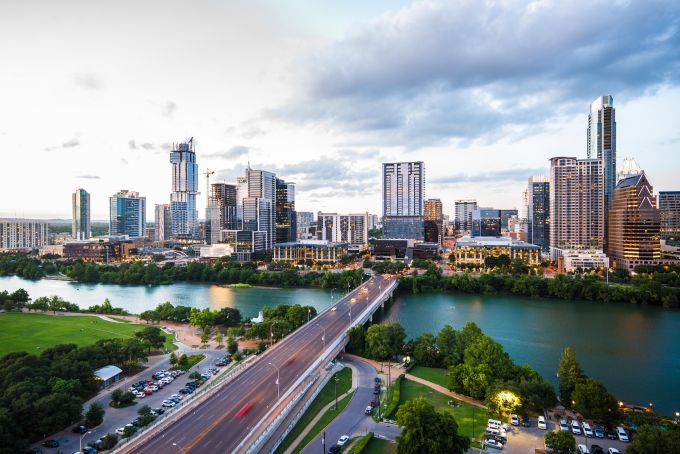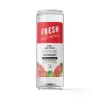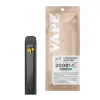Delta 8, or delta-8-tetrahydrocannabinol, has undoubtedly surged in popularity since its federal legalization in 2018. Although the hemp giant has, in some places, become widely accepted, some states don’t agree with the federal consensus. So, is delta 8 legal in Texas?
For now, yes. But the world of hemp can be confusing, and we’re here to help you navigate the sometimes-murky waters of cannabinoid legality.

Is Delta 8 Legal In Texas?
The legal landscape of delta 8 in Texas is constantly changing, which makes obtaining safe and legal cannabinoids within the state somewhat difficult. As of right now, delta 8 is temporarily legal in Texas, but the ins and outs of the whole topic are a little more complicated than that. Here’s a breakdown.
Texas’s hemp laws are heavily influenced by the United States government’s federal ruling on the subject. More specifically, Texas recognizes the 2018 Farm Bill, which legalized hemp and all of its derivatives at a federal level.
An important distinction made by the Farm Bill was the difference between marijuana and hemp. Although the compounds share no real scientific differences, they are considered different under the law. For both types of cannabis, their main legal difference stems from their THC contents.
While marijuana refers to cannabis plants that contain more than 0.3% THC, hemp defines cannabis plants that contain 0.3% THC or less. So, in other words, cannabis plants are legally distinguished based on their contents of THC.
While marijuana is federally illegal and also illegal in Texas, hemp is not. Because delta 8 is made from hemp, it is technically also legal under the Farm Bill. Its ambiguous legal status has made way for delta 8 retail stores to tap into a new, booming market as more and more customers realize delta 8 is a safe and, for now, legal option.
In 2019, Texas introduced Chapter 121 of the Texas Agriculture Code, which requires the state to develop a plan to monitor and regulate the production of industrial hemp. That same year, they also added Chapter 122 of the Texas Agriculture Code, which placed statutory requirements surrounding hemp, including licensing and testing.
Chapter 443 of the Texas Health and Safety Code, established by House Bill 1325, also allows Consumable Hemp Products in Texas as long as they do not exceed 0.3% delta-9-tetrahydrocannabinol, or THC. All other forms of delta 9, including delta 8 at higher concentrations, remain Schedule I controlled substances and strictly illegal.
In August of 2020, the federal Drug Enforcement Agency (DEA) updated its scheduling regulations, removing hemp from its list of controlled substances as long as it has less than 0.3% THC.
So What’s All the Buzz About Delta 8 in Texas?
Simple enough, right? Delta 8 is legal federally and also in Texas as long as it doesn’t surpass the 0.3% THC cap imposed by the Farm Bill. Not quite. It turns out the question, “is delta 8 legal in Texas?” is a little harder to answer than you would think. Here’s where it gets a little bit tricky.
According to the Houston Chronicle, “any time the DEA changes its rules on controlled substances, individual states are allowed to choose whether or not to adopt the changes or stick with their existing rules.” In January of 2021, the commissioner of the Texas Department of State Health Services (DSHS) rejected the DEA’s changes in favor of Texas’s existing THC restrictions, shutting down delta 8’s legality in the state.
That same January, a document was quietly added to the Texas Register that declared delta 8 to be a Schedule I Controlled Substance. With no public hearing and no information provided in advance, this decision resulted in quite some controversy. Specifically, it resulted in Texas-based companies filing a lawsuit against the state and pleading with courts to put a temporary restraining order on the ban.
An important note on the sneaky inclusion of this document is that, unlike others, it was submitted as an image rather than a PDF or HTML file, rendering it virtually unsearchable. It cannot be located using any relevant terms on the Texas Register—one would have to search through almost a hundred pages of the document to find the information by hand. Additionally, the DSHS held a public hearing to which no one showed up because they failed to inform the public and industry stakeholders.
It’s more than evident that the state went almost out of its way to introduce this addendum to the law in a quiet way. Although the plea for a temporary restraining order was initially denied, it was eventually granted in November of 2021. The final hearing for the case was set for January 2022, but it was canceled and never took place. As of now, there is no hearing scheduled, and it could be months—and maybe even more than a year—before the next court date.
In the meantime, thanks to the lawsuit’s temporary restraining order, delta 8 remains legal to buy and sell in Texas. Its long-term future, however, remains a coin toss.
Delta 8 temporarily legal in Texas again
Shipping Delta 8 Products to & from Texas
To make matters even more confusing, Texas even has a Consumable Hemp Program outlining rules and regulations to be followed by those who wish to sell hemp products in Texas—which presumably also includes THC. If all goes well with the ruling, here are the criteria to be met by manufacturers and distributors seeking to sell hemp-derived cannabinoids in Texas.
Licensing and Registration, Please
Texas uses an online process to license consumable hemp manufacturers and distributors as well as to register retail sellers of Consumable Hemp Products (CHPs).
A Retail Hemp Registration is required if a seller:
- Sells CHPs and doesn’t make any changes (including adding names or company logos) to hemp products or their packaging.
- Sells CHPs online (with no storefront locations) and doesn’t make any changes to the product or its packaging.
- In other words, if you’re selling hemp products in Texas but aren’t manufacturing or packaging them yourself, you need a Retail Hemp Registration.
A Consumable Hemp Product License is required if:
- CHPs are manufactured, which includes the following activities: preparing, compounding, processing, packaging, repackaging, labeling, and relabeling.
- A retailer white labels or private labels CHPS. This is when a business puts its own packaging on a product that was manufactured by another company.
- CHPs are sold wholesale.
Applicants are required to submit fingerprints and background checks in addition to three major documents:
- A completed Federal Bureau of Investigation Authorization Form
- A Hemp Property Owner Letter
- A legal description of the property with accompanying coordinates
According to a clarification published in the USPS regulations, hemp products can be sent through the United States Postal Service legally and safely within the United States. This means that if you’re a customer looking for an online delta 8 fix, you’ve got nothing to worry about! As a matter of fact, online stores are your safest bet if you’re looking for high-quality THC in the Lone Star State.
Delta 8 in Texas
Delta 8 may, for now, be legal in Texas, but that doesn’t mean that the state takes kindly to all sorts of cannabis products. Medicinal marijuana may be a different story—and there’s more on that later—but recreational cannabis remains strictly illegal in Texas.
Possession of up to two ounces is considered a class B misdemeanor in the state, punishable by up to 180 days in prison, a fine of up to $2000, or both. That said, several municipalities have enacted legislation decreasing the punishment.
Following the Farm Bill and Texas’s similar legislation a few years ago, smoke shops, convenience stores, and even gas stations began stocking up on delta 8 products, making them commonplace among stoners in the state.
That said, delta 8 products aren’t created equal, and there are some key things to consider when it comes to sourcing the best and safest delta 8 products you can—especially in uncertain times like these.

Things to Consider When Buying Delta 8 in Texas
Again, when buying delta 8 in Texas—or anywhere else—your best option is always online stores. Not only is it more convenient to explore delta 8 products from home than driving around the largest state in the contiguous United States looking for a good source, but online stores also tend to have more variety, more legitimacy, and, most importantly, available lab tests.
If you’re dead set on getting your delta 8 in person, here are a few things to look out for:
Purity & Potency
As with anything else you’re putting in your body, you always want to know exactly what’s in your delta 8 products. Because there isn’t a lot of government regulation when it comes to the safety standards of hemp products, cannabinoid companies often make up their own safety and purity standards.
To ensure that no pesticides or carcinogens are absorbed by the hemp leaf used in your products and to ensure that the quality and potency of the product are as advertised, it’s best to only buy from companies that third-party lab test what they sell. But testing isn’t all there is to it—legitimate companies committed to safety and quality will usually have the lab tests available for your inspection.
This is where buying online comes in handy; oftentimes, cannabinoid companies have entire sections of their websites dedicated to test results. If you’re thinking of buying from a company with no lab tests, that’s a sign to look elsewhere.
Reputation
In today’s online world, it’s easier than ever to understand how a company operates based on its reviews. A well-established company will have glowing customer reviews when it comes to the quality of products, reasonably priced and speedy shipping, and customer service satisfaction.
Look out for the way their customers respond to their services. Are they saying good or bad things about the products? Does the company respond to customer service comments or complaints? Are their customers satisfied with their overall experience?
Texas Cannabis Market Grows With Delta 8 & Medical Marijuana
We know that recreational cannabis is illegal in Texas. But surprisingly, medicinal marijuana is not. As a matter of fact, medical cannabis is somewhat of a booming industry in the Lone Star State, but what does the introduction of legal delta 8 products in the hemp market mean for this economy?
Texas Medical Cannabis Laws
Like many other states, Texas has what they call a Compassionate Use Program (CUP) that allows certain physicians to prescribe low THC cannabis for medical reasons. According to the Texas state government, “Low THC comes from the plant Cannabis Sativa L. All parts of the plant and any resulting compounds, salts, resins, oils, and derivatives that contain no more than 0.5% by weight of THC are considered Low THC.”
An interesting note in Texas’s medical cannabis laws is that it limits its usage to swallowing, not smoking, a prescribed dose of low THC.
Although medical cannabis was first legalized in the Lone Star State six years ago, House Bill 1535 passed in 2021, expanding the list of qualifying conditions to include cancer and PTSD.
By law, Texas’s Compassionate Use Program is limited to patients with:
- Epilepsy
- Seizure disorders
- Multiple sclerosis (MS)
- Spasticity
- Amyotrophic lateral sclerosis
- Autism
- Cancer
- An incurable neurodegenerative disease
- PTSD
Originally, the Compassionate Use Program only expanded to patients with terminal cancer, but it has been adjusted since then.
- In Texas, patients can get a Low THC cannabis prescription if:
- They are a permanent resident of Texas.
- They have one of the medical conditions listed above.
- A CUP registered physician prescribes it; the physician, however, must first determine if the benefits outweigh the risks.
There is no age limit for prescriptions. Patients under 18, however, may need a legal guardian to get a prescription.
Once granted a prescription, the patient or legal guardian can go to any licensed dispensary to get their prescribed product. They made need to provide ID and the patient’s last name, date of birth, and last five digits of their Social Security Number.
Texas Medical Cannabis vs. Delta 8
The legality of delta 8 in Texas can prove tumultuous for companies in the medical cannabis industry. Despite being chemically differentiated by the placement of a carbon atom, scientists and researchers agree that delta 8 is simply a milder analog of the better-known delta 9. As such, it possesses most of the same benefits and qualities as the compound, albeit to a lesser extent.
You don’t need a prescription or card of any kind to buy delta 8 products in Texas. All you need is a valid ID proving you’re of age, and you can freely and legally walk out of any store—or place any orders online—and enjoy the buzzy effects of delta 8.

Where To Find Delta 8 in Texas
Now that you’re well-versed in delta 8’s legal status across the Lone Star State, you may be wondering where to get the goods safely and legally. As we’ve said before, buying online is the most convenient way to source your cannabinoids, including delta 8. That doesn’t mean, however, that getting good-quality, safe delta 8 in person is outright impossible.
Below we’ve listed a few trustworthy delta 8 retailers in major metropolitan areas throughout the state so that no matter if you’re trying to Keep Austin Weird or rootin’ for the Astros, you can do so safely (and with a great buzz).
Austin – Delta 8 THC Austin – 4.8 Stars
Delta 8 Austin has a wonderful selection of cannabinoid products at terrific prices. It’s true, there are dozens of other cannabinoid retailers in Austin, but none of them have what this place wears on its sleeve: jaw-dropping product varieties, great prices, and a kind, knowledgeable staff.
Houston – Delta 8 Houston – 5.0 Stars
Delta 8 Houston counts on extremely hard-working, helpful, and educated staff members. Their products are said to be effective and well-priced. If you’re in H-Town, this is an unmissable spot!
Dallas – Vape’ N Vapor – 4.8 Stars
Established in 2013, Vape’ N Vapor was born out of a lack of accessible products of quality accompanied by excellent customer service. With a staff willing to help and aiming to please, and a vast array of adequately priced products, this store has it all to meet your delta 8 needs.
Are Other Hemp-Derived Cannabinoids Legal in Texas?
Delta 8 may take the crown as a crowd favorite when it comes to hemp-derived cannabinoids, but this compound isn’t the only player out there ready to show you a good time. In fact, the cannabinoid has many relatives with distinct properties and benefits; but what are they? And are they legal in Texas?
- Delta 10 is one of the mildest, if not the mildest, hemp-derived compounds on the hemp market today. Its buzz is energizing and focusing while simultaneously stimulating creativity. With its little risk for adverse effects like anxiety and paranoia, this is a great compound for beginners.
- Delta 9, or delta delta-9-tetrahydrocannabinol, is simply and undeniably a cannabis classic. When people think of the effects of weed, this is the compound they mean. It’s around twice as strong as delta 8, but the two compounds are otherwise very similar.
- HHC gives you a relaxing, uplifting buzz strong enough to get you feeling good but mild enough to keep you from getting couch-locked. Its potency exists somewhere in the middle of delta 8 and delta 9.
- Lastly, there’s THCP. The single most potent cannabinoid discovered to date, THCP is extremely psychoactive and has been found to bind to cannabinoid receptors up to 33x more frequently than delta 9.
If you’ve already tried these cannabinoids and want a taste of more, or if you’re interested in trying them for the first time, you’re in luck!
As long as they comply with the 0.3% THC cap enforced by the Farm Bill, all of these compounds are completely legal to purchase and possess in the state of Texas… for now.

Is Delta 8 Legal in Texas: Final Thoughts
So, is delta 8 legal in Texas? It is for now. The nuances surrounding the delta 8 Texas scene are complex and uncertain, but we’re hopeful that the lawsuit brought forth by delta 8 companies against the state will have a positive outcome.
Between illegal recreational marijuana and limited but legal medicinal cannabis, delta 8—and other hemp-derived compounds—have an ambiguous future.
If you’re down to get delta 8 while you can, remember, it’s always best to buy online!
For now, you’re in the clear to buy and consume delta 8 products in Texas, but stay vigilant for dubious products and upcoming legal battles.






